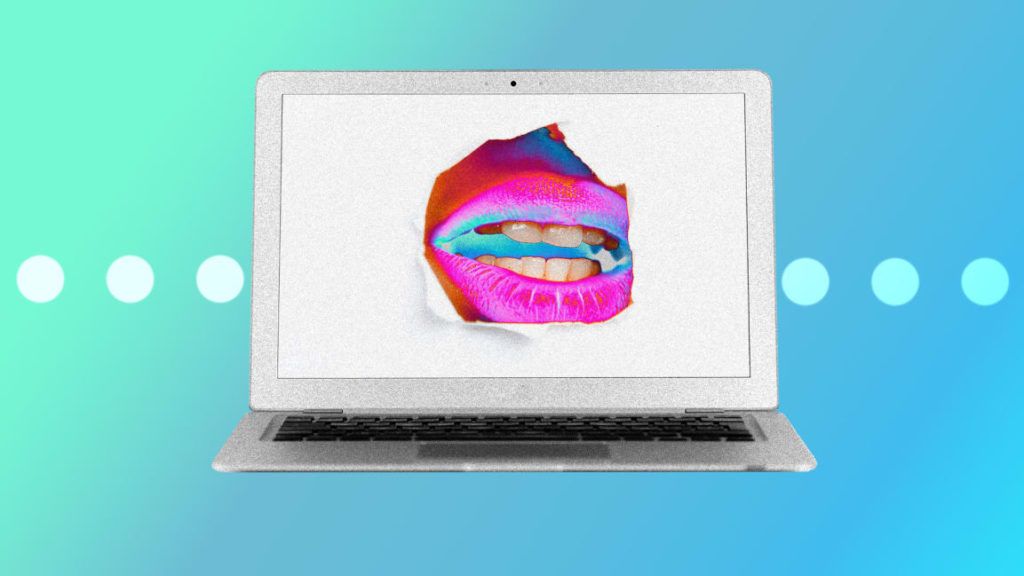There’s something about the combination of monthslong quarantine, 10+ hours a day staring at screens, massive unemployment numbers and proliferating misinformation that brings out the best in humanity. Kidding! Our digital worlds are saturated with charged rhetoric these days.
It’s no secret anymore that one ill-conceived social media post can trigger the downfall of a business or professional career, or at the very least a PR fiasco. From pageant queens to government officials, outspokenness and cancel culture are heightened at the moment, and this polarized landscape (along with the realization that saying nothing sometimes equates to being complicit) has you feeling the need to speak up virtually.
Why we’re so much more brazen online than in person - Post Outline
Urban Dictionary even has a phrase for this, “PC Bravery,” which they define as “False bravery that comes from hiding behind a computer screen. Includes (but is not limited to) saying things that you would never typically say in a face-to-face conversation, making empty threats to people you don't like, and/or making up lies just to get a rise out of people (also known as trolling).”
Why is this? It turns out both sociologists and technologists have grappled with our digital lives feeling inhuman for over 40 years. This quandary is known as social presence theory, and it might give us insights into why the present moment’s special blend of increased screen time and decreased in-person interaction has us feeling so gutsy right now.
What Is Social Presence Theory?
Social presence theory was defined by social psychologists John Short, Ederyn Williams, and Bruce Christie in the 1976 book The Social Psychology Of Telecommunications. At its core, the theory examines the ability of a communication medium to accurately and effectively transmit social cues.
Nothing beats in-person interaction with regard to communication. So now that we’ve been glued to the news for months, and have also had our usual face-to-face interactions stunted by stay-at-home directives, has our capacity for empathy changed?
The often-cited 1972 research on nonverbal communication from Dr. Albert Mehrabian birthed the assertion that 93% of communication is nonverbal. Even as the percentages of this research continue to be explored and sometimes rejiggered, we generally accept that other modalities of communication such as body language and facial expression shape our perceptions of another person and how we respond to them. Without these nonverbal signals, we have a less complete experience of others and are more easily influenced by a group’s overall opinion.
Why Social Media Accelerates Groupthink?
Like-minded groups assemble with remarkable ease on social media platforms, which can also cloud our judgment. In groupthink, the quest for unanimous opinion can override our ability to objectively consider other opinions; Irving Janis’ 1972 book Victims Of Groupthink describes it as “a deterioration of mental efficiency, reality testing and moral judgment”. Mind you, this was 35 years before Instagram.
Additionally, a YouGov Omnibus survey conducted in 2015 found that 57 percent of Americans who use social media have posted or texted something that they regret afterwards, and one in six of those respondents claimed to regret a post at least once a week. There’s also a mountain of research that connects increased screen time with a reduced capacity to regulate self-control or finish what you start, particularly in young people. (Perhaps that’s why I keep making time to eat cookies, yet can’t seem to finish writing this article? I digress.)
How To Deal With Triggers In A Healthier Way
There are some tried-and-true tips to get back into empathy whenever you feel swirled into a virtual firestorm. Always run your responses through the lens of “Would I say this to this person face-to-face?” And if a comment or post triggers anger in you, take a moment and process the situation before responding. Maybe that means you shut down your computer (turning it all the way off for perhaps the first time in weeks), take a walk, or call up a friend to vent. Resist the temptation to immediately fire away on your keyboard when emotions are heightened; that’s your fight-or-flight response kicking in. Diamonds are forever, and so are screenshots.
(Or perhaps take a break altogether? Food for thought: A 2014 article in the journal Computers In Human Behavior summarized a research study in which spouses’ time on social media was positively correlated with feelings of wanting a divorce as Facebook adoption skyrocketed from 2008-2010.)
Lashing out is never a good look. But our current circumstances have created a one-two punch of increased screen exposure and reduced in-person camaraderie that probably has you feeling on edge. Take a moment to pause and reflect; you may find that, for the first time in months, you feel like yourself again.
Thanks for reading. 🙏🏼
Keep up the momentum with one or more of these next steps:
📣 Share this post with your network or a friend. Sharing helps spread the word, and posts are formatted to be both easy to read and easy to curate – you'll look savvy and informed.
📲 Hang out with me on another platform. I'm active on Medium, Instagram, and LinkedIn – if you're on any of those, say hello.
📬 Sign up for my free email list. This is where my best, most exclusive and most valuable content gets published. Use any of the signup boxes in this article, or go to the newsletter page here.
🏕 Up your marketing game: Camp Wordsmith™ is my business and writing program for small business owners and online entrepreneurs. Get instant access to resources and templates guaranteed to make your marketing hustle faster, better, easier, and more fun. (It's also "glamping"-themed – who doesn't love luxurious camping?!) Learn more here.
📊 Hire my marketing company: Hefty Media Group provides consultation and done-for-you services in content marketing. We're a certified diversity supplier with the National Gay & Lesbian Chamber of Commerce, and we'll make you sound damn good via the written word. Learn more here.
© 2021, 2022, Hefty Media Group. All Rights Reserved.


